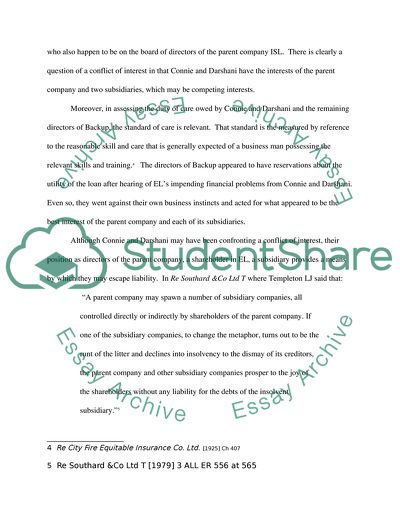Cite this document
(“Company Law Essay Example | Topics and Well Written Essays - 2000 words - 4”, n.d.)
Company Law Essay Example | Topics and Well Written Essays - 2000 words - 4. Retrieved from https://studentshare.org/miscellaneous/1554059-company-law
Company Law Essay Example | Topics and Well Written Essays - 2000 words - 4. Retrieved from https://studentshare.org/miscellaneous/1554059-company-law
(Company Law Essay Example | Topics and Well Written Essays - 2000 Words - 4)
Company Law Essay Example | Topics and Well Written Essays - 2000 Words - 4. https://studentshare.org/miscellaneous/1554059-company-law.
Company Law Essay Example | Topics and Well Written Essays - 2000 Words - 4. https://studentshare.org/miscellaneous/1554059-company-law.
“Company Law Essay Example | Topics and Well Written Essays - 2000 Words - 4”, n.d. https://studentshare.org/miscellaneous/1554059-company-law.


